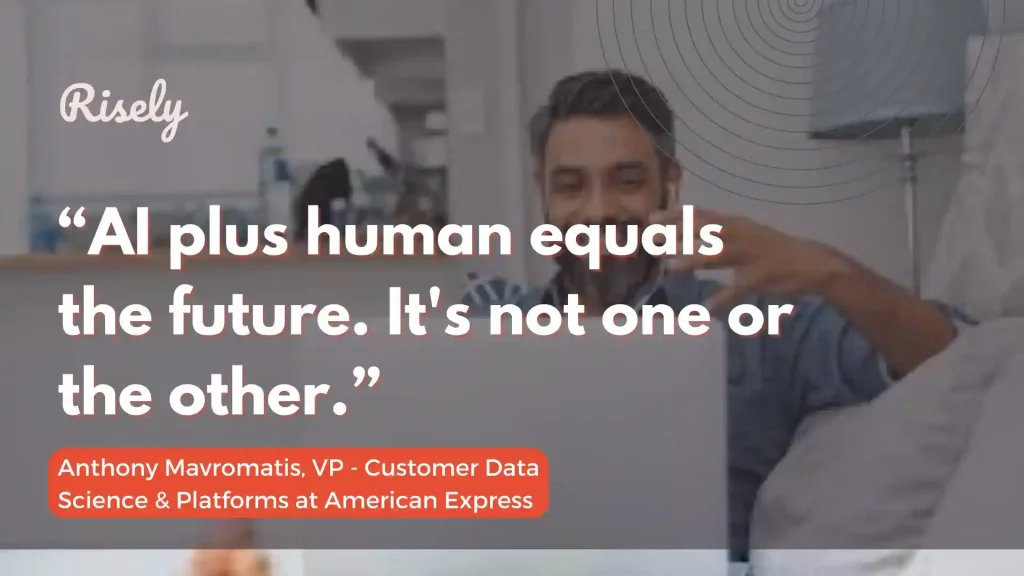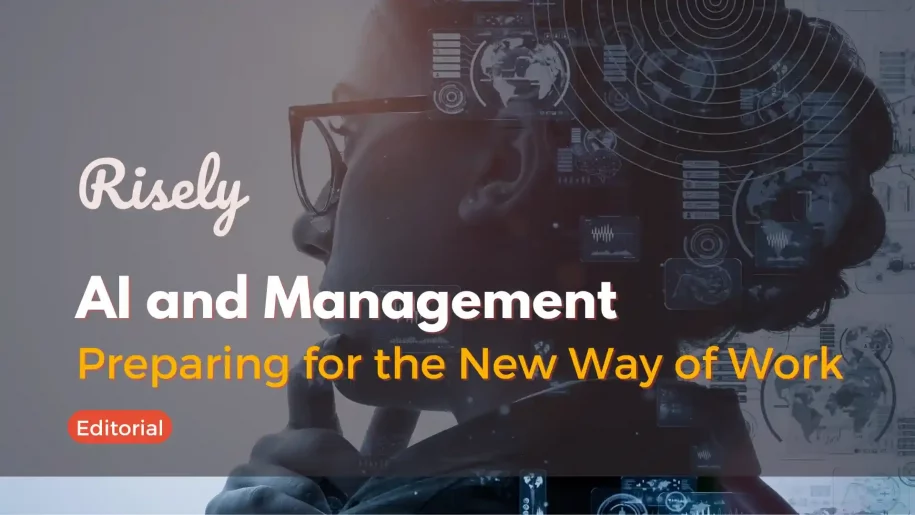AI and Management: Preparing for the New Way of Work
Nearly a century ago, celebrated economist Keynes remarked, “We are being afflicted with a new disease – technological unemployment.” As we stand on the verge of a new technological revolution in a post-pandemic world, our understanding of work, workplaces, and workers is set to be altered once again. Frequent layoffs have become a thing of the present era without much anticipation of relief as the global economy continues its downturn. But there’s another entity to blame: AI. The threat of artificial intelligence on various jobs is rising; the fear has now taken up a new name – AI exposure. Yet, there is much to be understood in this discourse, which is increasingly shaped by alarming voices rather than clear ideas. Earlier this year, a report by the multinational HR company Challenger, Gray & Christmas revealed that AI was responsible for 4,000 jobs lost in May, accounting for 4.9% of all jobs lost across sectors in the month in the US. The findings triggered rapid reactions and apprehensions about the future of work, with statements from organizations like IBM and the US’s National Eating Disorder Association, which adopted an AI chatbot to replace its helpline services, pointing toward a future of work compatible with AI. Fears of job replacement are not unfounded, but how valid are they in the present? Let’s find out right from the beginning.Previous Eras of Change
The 21st century is not the first time technological change has come knocking and changed how we work. It has happened before, twice, primarily if we go by the trends.The Responses to Industrial Revolution
In the summers of 1830, Barthélemy Thimonnier was a happy man. A French tailor, he had patented a design for sewing machines and set up the first machine-based clothing manufacturing unit to cater to the needs of the French army. With success, trouble followed suit. Thimonnier’s workshop was the center of a riot, and angry workers burned down his factory over the fear of losing their livelihood as machine arms were replacing their hands. Thus began the first foray of man and machine over an industry that was set to be revolutionized in the years to come with the help of much more advanced technologies.Digital Revolution and the Future
A hundred years passed, and humanity looked at a similar yet broader challenge. In a world that had been made so different by the Industrial Revolution, another wave of technology rushed in. While meeting skepticism initially, the broad consensus now agrees that digital technology alters and creates jobs. An ILO study focusing on the EU gave much more clarity: digital skills are set to become the bedrock of effective work along with non-cognitive skills. A supplementary function of technology is set to redefine many jobs, especially those at high risk of automation. This puts the spotlight on the managers and HR professionals leading organizations through these changes and preparing them to adapt.Present and Beyond – The New Wave of Change
The present age is marked by technology assisting humans in every nook and corner. There is a marked shift from the sewing machine riots of the earlier centuries – technology is now viewed as a complementary force instead of a challenger. Hence, the popular opinion calls for a mid-way, where workers upskill themselves to become more productive by utilizing technologies. Organizations are called in to support this transition by enabling opportunities for their workers.Anywhere between 75 and 375 million workers (3% to 14% of the global workforce) will seek career alternatives by 2030 to stay relevant as companies increasingly seek automated solutions. Jobs lost, jobs gained, McKinsey
What’s Happening? And What’s More?
David Autor, MIT economist, noted, “A lot of professional work combines some element of routine information processing with an element of judgment and discretion. That’s where software has always fallen short. But with AI that type of work is much more in the kill path.” Such ideas bring us back to what we started with – the prediction of technological unemployment. Before heading on developing responses to the new wave of technologies that include AI, immersive techs like AR and VR, and much more, the key lies in understanding what impact they will create. Yet, there is a gap here. A number of studies are conducted across the US and EU to explore these areas, which leave out the Global South. These studies, like the one focusing on the EU, have revealed that the vulnerability of a job to AI varies across many factors – including how work is done, where it is done, and who the workers are. It further requires strong assumptions about future demand for goods and services, organization of production processes, rate of adoption of technologies, cultural and institutional factors, and changes in consumer preference. Interestingly, the impact focuses heavily on white collar workers, who have been largely assumed to be safe from such shifts. As Pew Research reports, jobs in high-paying fields that typically need a college education and analytical skills are ranked higher for AI exposure. Still, we can surmise a few key points:- Jobs that do not involve complex social interactions and have routine processes are more susceptible to automation.
- Job creation is going to compensate for these changes. As new tech evolves, it will create novel opportunities and jobs to mitigate the negative impact.
- AI changes things: While the earlier eras hurt the blue collar workers, white collar employees are facing the brunt now.
The 21st Century Manager
Over the years, managers and leaders have become an essential element in the success of any organization through their resourcefulness and strategic insights. As the world heads toward a new way of working, this profession is set to digest wide-ranging changes as well. A glimpse of these changes became evident during the pandemic-induced remote working modes. The managers of the day favor a definition that emphasizes collective growth and agility with a strong focus on efficiency. How well does this profession hold on against AI? Let’s try to figure out.From Personnel Management to Human Resources
As work has changed – from being organized primarily around manufacturing centers to concentrating on providing services – the importance of managers is felt more vital than ever. Things started picking pace with the Industrial Revolution, later creating the space where the concepts of Scientific Management and Administrative Management played out until the need for a human touch was felt! As the field of personnel management stood at a nascent stage in those eras, some substantial changes and contributions later cemented themselves as the classical and neoclassical schools of management theory. In the present age, however, there is a lack of developments that can prepare managers to tackle new challenges head-on.AI in Management: Envisioning the Future
Currently, automation is set to have widely varying impacts across countries and sectors. The positive side is that automation and AI for managers cannot replace functions like people management that rely heavily on social interaction. It ensures that jobs in the management field are primarily safe from a wipe-out. But does that mean consistency in the roles itself? Probably not. The inclusion of AI at work does not replace but instead redefines jobs. So, the people in one role might not lose jobs, but they would work differently. For instance, for an HR Generalist, the addition of technology ensures that they are cutting down on manual tasks – payroll management is automated, surveys are digital, and forums are hosted online! As per McKinsey, management features in the list of areas estimated to witness the highest job growth upon automation. Some indicators point to 75% growth in India and around 15% in the US within the industry by 2030.AI in Management: A Challenger, or a Helping Hand?
Companies like Hilton and American Express that have adopted AI in some aspects of their work are returning for more. The world for managers is taking a new turn for sure. As the WEF also highlighted, by automating the administrative aspects of a manager’s role, there’s much more that they can do with their soft skills. Based on surveys, people are excited to welcome AI and technology into their workplaces. There is a split here as well.
The Case for Building Skills in the Era of AI and Management
Now that the world of a manager is not just limited to their teams, their skills also call for a broader approach. As managers in the present era, some defining qualities become the sine qua non, namely, agility and empathy. An agile framework for managers, encapsulated in a growth mindset, would be the key to professional and personal success. While the world undergoes rapid changes, managers must also tackle novel challenges that arise with the broader use of advanced tech across generations; focusing on empathy in these interactions is vital for success.Managerial Skills – What to Build and Break
A paper from the Journal of Decision Systems, titled “The impacts of artificial intelligence on managerial skills” signals changes in the managerial skill sets of the day based on inputs from over a hundred AI experts. First, there are some areas that AI for managers will augment and support. Think of functions that can help managers save time and raise efficiency – analyzing complex data to support decision-making, screening profiles, dealing with work pressure through solid time management and scheduling, etc. On this extreme lies another set of skills that AI in management can replace to a large extent with the proper backing from organizations. These include functions that call for routine cognitive tasks such as gathering information and making simple decisions. The last and most exciting part includes skills that will be the need of the hour to envision and execute an AI-powered workplace as a manager. First, managers need to start with technical know-how to understand the technologies they are working with. HRs rate the ability to use AI tools as the top preferred digital skill but simultaneously expect a wide gap and training opportunities, too, signaling the need for coaching and guidance ability on the part of managers. Moreover, AI and management together make a risky business. There are potential harms that come along with the benefits. Managers need to be prepared to handle risk and the ethical and behavioral challenges bound to arise from these interventions. Hence, judgment and ethical decision-making abilities become very important. Lastly, the movement of an organization from a conventional to an AI-led approach to work is a significant shift. Managers leading this change need to be open-minded and spread the same ideas. Effective communication to secure buy-in and establish trust, change management to facilitate the move, and collaboration across the various functions would be essential skills to hone for any manager. But not all is about what’s about to happen. Some areas remain constant as the manager’s field of play, namely, leadership and imagination. The complex interactions and skills needed here are beyond the realm of AI and remain critical abilities for successful managers.
How to Grow skills? Searching Solutions that Solve for the Present
This occasion gives an excellent opportunity to remember the first law of digital innovation: Technology changes quickly, but organizations change much more slowly. Given that there is an evident shift in skills, managers need to succeed; the question is – can managers navigate these changes? Here, we need to think of what managers need to do to build their skills. There is the same old list: we have management gurus sharing success mantras, three-day workshops that cover everything, and self-led paths with questionable conclusions. Organizations are experiencing an evident gap in solutions that solve for the present – a fast-paced world where problems need resolutions as they come.“Many learners find it tedious to watch lengthy video content. Traditional training methods, besides being both time-consuming and costly, frequently fall short of meeting the demands of modern workplaces. Through my extensive conversations with Learning and Development (L&D) professionals throughout the years, I’ve concluded that there is a strong demand for interactive learning tools, specifically customized videos that captivate learners effectively. Furthermore, incorporating features such as self-paced learning and incentives along the learning path can significantly boost completion rates. Effective training for professional success should be tailored to individuals’ specific requirements rather than relying on monotonous slides and seminars.” Vishnu Raned, CEO of VideoKenThe new leadership and manager development solutions must sing the tale of the time. All in all, the approach needs:
- A fast-paced method that solves challenges in real-time
- Personalization over generic ideas to enable precise interventions
- Multiple avenues to involve various perspectives and cultivate innovation
- Presentation in easily accessible as well as modern formats
Anxieties Over AI in Management and Overcoming Them
The presence of AI in management along with other advanced technology undoubtedly leads to career anxiety among management professionals. Accenture’s H. James Wilson, managing director, says, “The No. 1 source of worker anxiety is around ensuring the relevance of their skills.” With the predictions of significant job changes in the job market and roles, there are apparent concerns about future bug managers. However, managers can overcome these risks by building the skills needed for the future of work. As AI cannot reach specific areas, leadership and imagination remain the entitlements of managers. Until now, professionals have had to compete with other professionals who have their own unique set of strengths and challenges. This competition has been relatively high, as we all know. And to top all this, we now have AI to compete with. With all this, workplace stress has become a regular visitor in our lives. So much so that we don’t even notice when this stress takes the shape of anxiety, and a significant part of our time and energy goes into analyzing all things that could go wrong, our (perceived) shortcomings, lack of skill, etc. And technological advancements indeed make our lives turn around like AI is now. But it’s also true that we eventually come back to the unique qualities and attributes that humans bring, which AI cannot. Yes, AI can change how humans work, and we should use it to enhance our work and guide us to growth and development as leaders. A few ways to get started on a healthy note with AI in management can be:- Be aware and proud of your unique attributes that make you helpful at the workplace.
- Education and self-awareness – be truthful about how much you know and what else you need to learn.
- Keep yourself updated with new advancements so that you don’t get behind.
- Collaborate and connect with colleagues and mentors to share your concerns.
- Incorporate AI into your teams in smaller projects instead of large-scale implementations. Understand how it works and impacts your team, and learn and grow from there.
Conclusion
As we look to the future, it’s evident that we’re on the cusp of a new technological revolution, reshaping the landscape of work, workplaces, and the role of workers. The ominous specter of technological unemployment, once foreseen by Keynes, has taken on a new form – AI exposure. This era is marked by the rapid integration of artificial intelligence into various facets of work, raising concerns about the future of employment. Historically, humanity has weathered technological changes, notably the Industrial and Digital Revolutions, which transformed how we work. These shifts had their share of challenges and opportunities, and the advent of AI is no exception. However, AI’s role is more complementary than adversarial. Workers are expected to upskill and work alongside technology, fostering a more nuanced relationship. As AI redefines roles, managers, often seen as safe from automation, are also experiencing shifts in their functions. AI isn’t replacing managers; it’s augmenting their capabilities. To thrive in this evolving landscape, managers need to develop a dual proficiency in people management and technology management. They must possess the skills to harness AI in management to enhance their decision-making and efficiency while remaining committed to fostering collaboration, innovation, and a positive work culture. While the advent of AI in management understandably brings anxieties about job security and relevance, managers can overcome these challenges by embracing the technology and focusing on developing their leadership and imaginative skills. AI for managers may complement their abilities, but it cannot replace the unique qualities that define the role of a manager in the workplace. By doing so, you can confidently navigate the ever-changing world of work and lead your teams to success in an AI-enhanced future.How strong are your leadership skills?
The world is constantly evolving. With new challenges and opportunities awaiting across the chasm – are you prepared to win? Find out for free now.
Other Related Blogs
Building an Ultimate Leadership Development Action Plan
How to Build a Leadership Development Action Plan? Having a strong Leadership Development Action Plan is more critical than ever in today’s evolving business world. Whether you’re looking to drive…
Leadership Journey Examples on the RiseUp Radio Podcast
Leadership Journey Examples on the RiseUp Radio Podcast Leadership isn’t a destination – it’s a journey filled with twists, turns, and transformative moments that shape not just careers, but entire…
What is Immersive Learning? A New Era in Education
In this blog, you’ll learn what is immersive learning and how it is changing training, increasing engagement, and influencing the future of workforce development. … Read More
What are Learning Designs? All You Need To Know
This blog explains what learning designs are in depth while also covering it’s key components. It tells you about the process involved in creating a good learning design along with…


